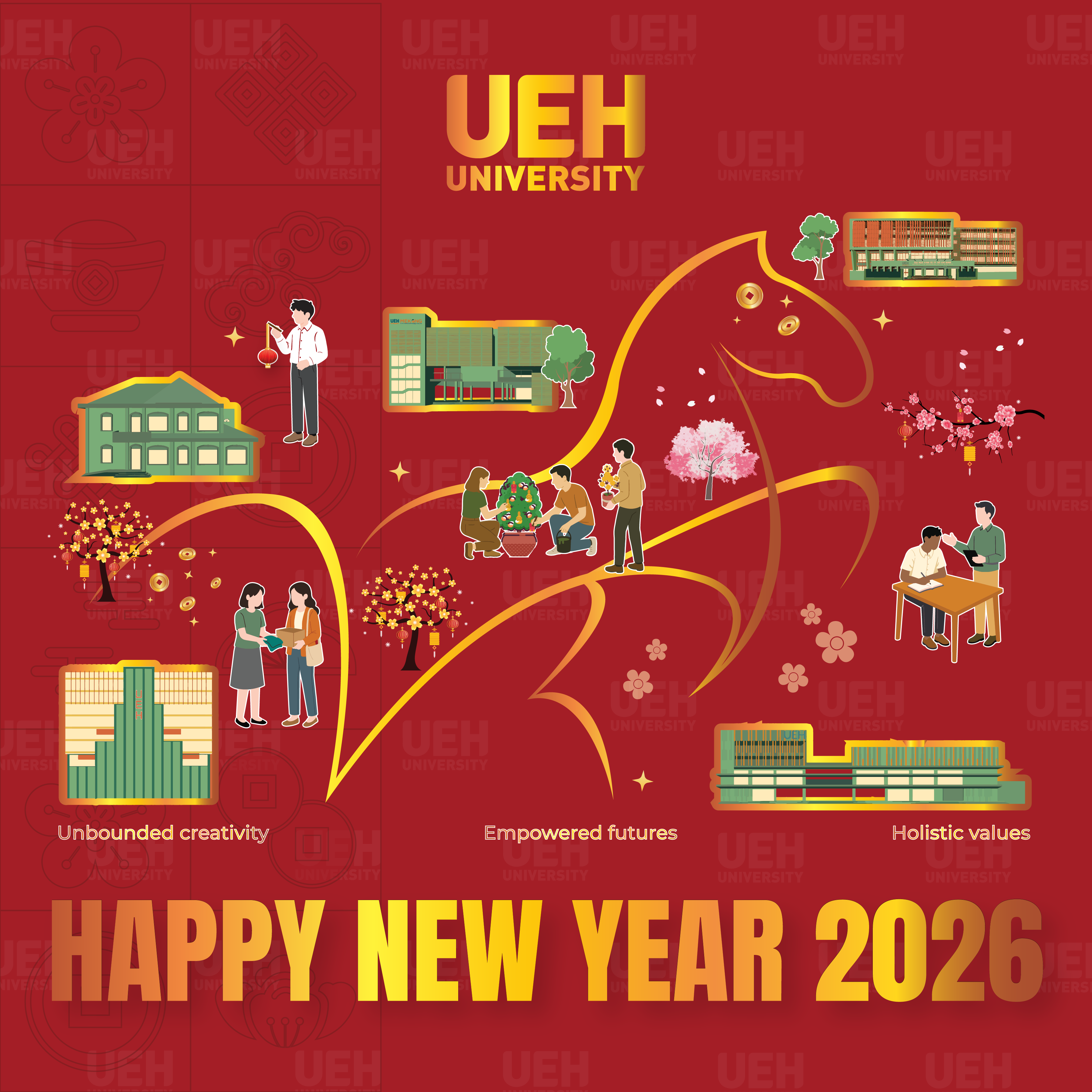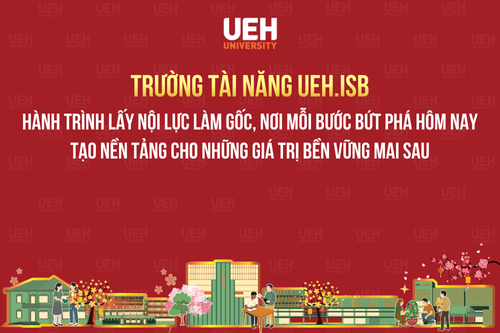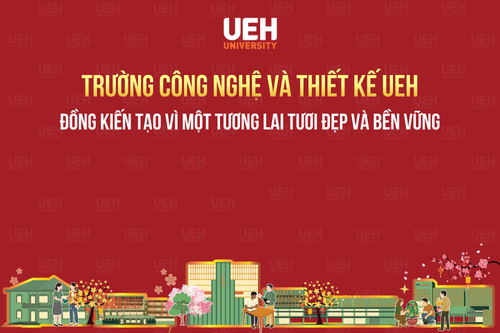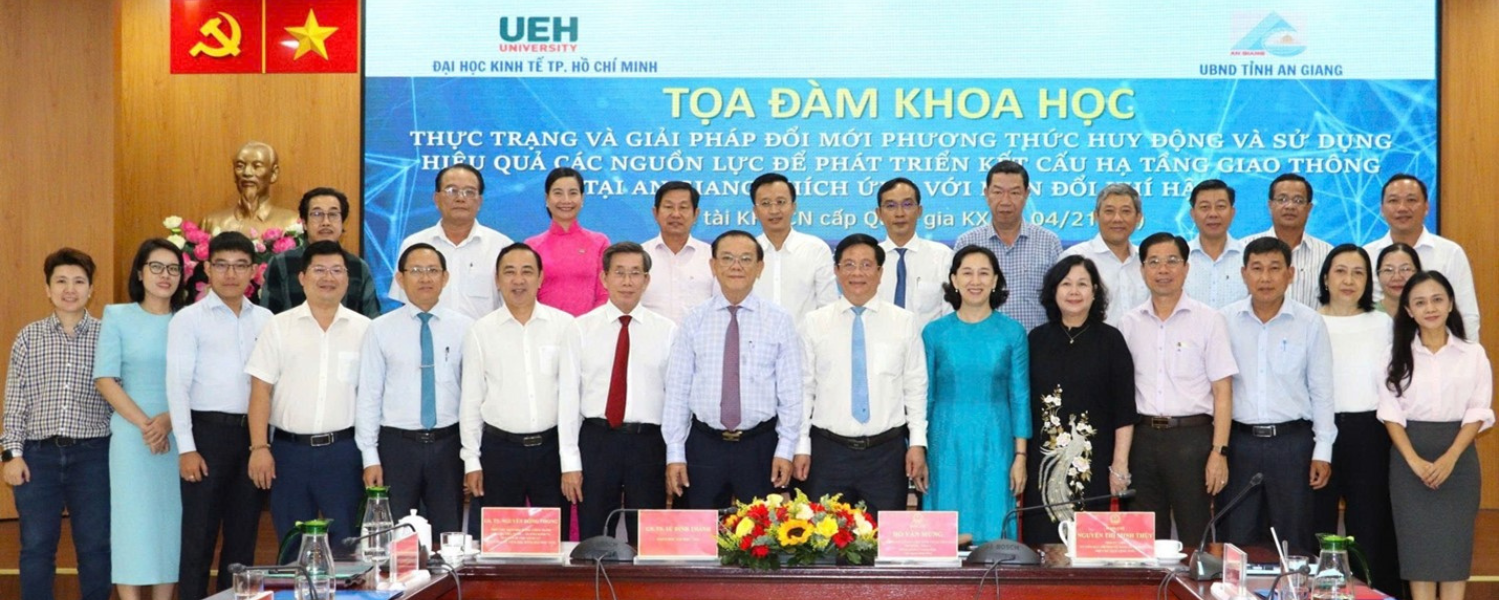
UEH Partners with An Giang Province to Find Solutions for Sustainable Transportation Infrastructure Adapting to Climate Change
23 Oct, 2025
On October 18, 2025, the University of Economics Ho Chi Minh City (UEH), in collaboration with the An Giang Provincial People's Committee, organized a scientific seminar on the theme "Solutions for Innovating Methods of Effective Resource Mobilization and Utilization to Develop Transportation Infrastructure in An Giang, Adapting to Climate Change: Current Situation and Recommendations."
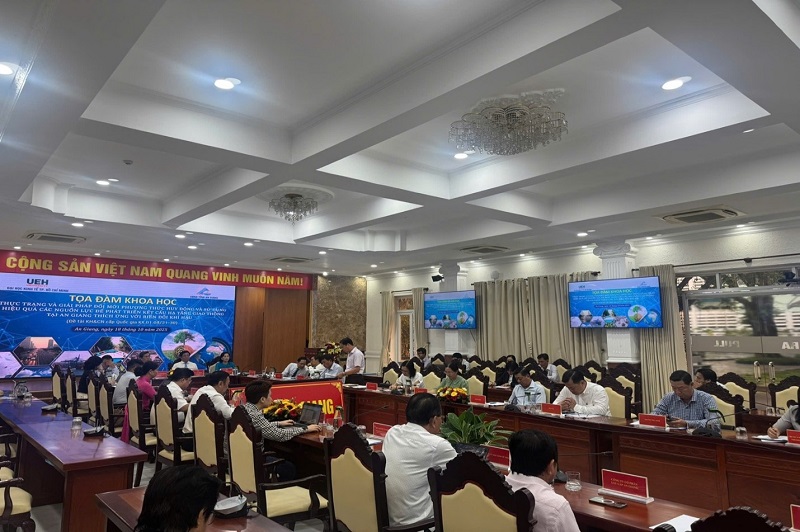
Overview of the seminar at the An Giang Provincial People's Committee headquarters
A Scientific Forum for the Sustainable Development of the Mekong Region
The seminar was held within the framework of the National-level Scientific Project "Innovating Methods of Effective Resource Mobilization and Utilization to Develop Transportation Infrastructure in the Mekong Delta Region, Adapting to Climate Change" (Code: KX.01.04/21-30), led by UEH. The project aims to propose innovative mechanisms and solutions for mobilizing, allocating, and utilizing resources, contributing to policy direction for the development of a green, smart, and sustainable transportation infrastructure in the Mekong Delta.
The seminar was co-chaired by Mr. Ho Van Mung – Deputy Secretary of the Provincial Party Committee and Chairman of the An Giang Provincial People's Committee; Prof. Dr. Nguyen Dong Phong – Vice Chairman of the State Council for Professor Title in Economics and Chairman of the UEH Council (2020–2025 term); and Prof. Dr. Su Dinh Thanh – President of UEH.
Attendees included leaders from provincial departments and agencies, businesses, associations, along with experts, scientists, and faculty from UEH and UEH Mekong.
From Research Knowledge to Practical Solutions
In his opening remarks, Prof. Dr. Nguyen Dong Phong emphasized: “The development of transportation infrastructure is fundamental to sustainable growth, especially in the context of increasingly severe climate change, landslides, and saltwater intrusion. To overcome budget limitations, An Giang needs to seek innovative capital mobilization mechanisms, combining the strengths of the state, enterprises, the community, and international partners.”
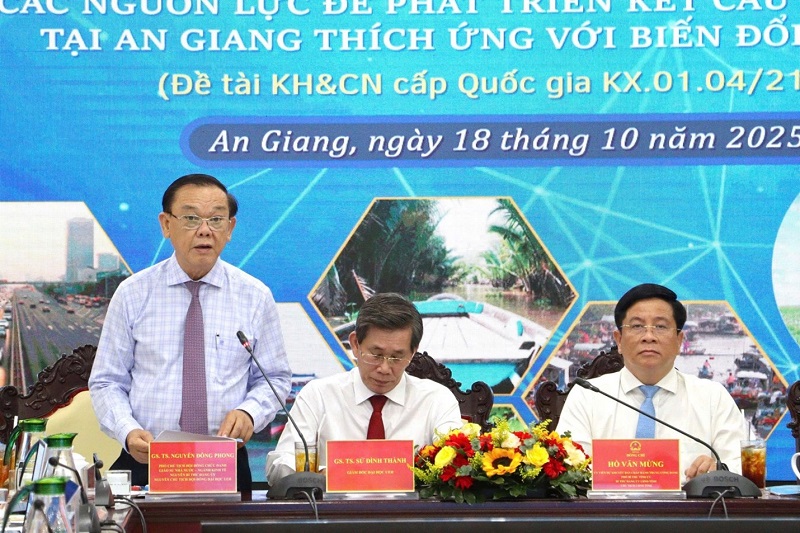
Prof. Dr. Nguyen Dong Phong delivering his opening remarks
Thematic reports at the seminar focused on analyzing the current situation, challenges, and solutions for transportation development in An Giang province, including:
+ Infrastructure planning orientation to 2030, with a vision to 2045;
+ Solutions for mobilizing financial, human, and technological resources;
+ The impact of climate change and adaptation scenarios.
Representing the An Giang Department of Construction, Mr. Nguyen Van Hon – Vice Director of the Department, noted that the province has three distinct topographical features: plains, hills, and coastal areas—corresponding to the Long Xuyen Quadrangle, inland hilly regions, and the area west of the Hau River. This is a significant advantage for developing diverse forms of tourism, such as spiritual, ecological, cultural, and high-quality resort tourism.
Currently, An Giang has established three expressway routes with a total length of over 106 km and an inland waterway system of 5,421 km, facilitating passenger and freight transport and promoting regional connectivity and local socio-economic development.
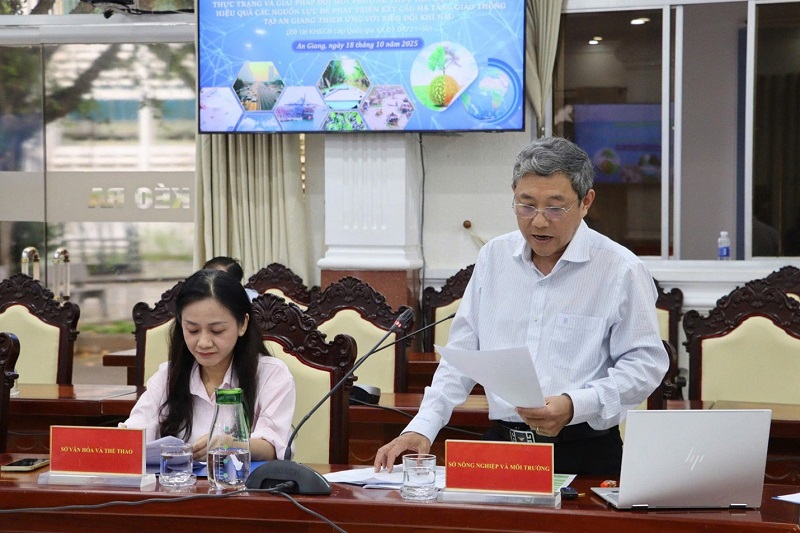
Mr. Nguyen Van Hon – Vice Director of the An Giang Provincial Department of Construction, presenting on "The Current State and Orientation of An Giang's Transportation Infrastructure Planning to 2030, with a Vision to 2045"
Representing the Department of Finance, Mr. Pham Minh Tam – Member of the Provincial Party Committee and Director of the Department of Finance, stated: An Giang is accelerating the development of a modern, synchronous socio-economic infrastructure, linked with public investment restructuring and economic transformation. The development of the private economic sector is a crucial driver, requiring the effective mobilization of all resources to create a foundation for sustainable growth in the coming period.
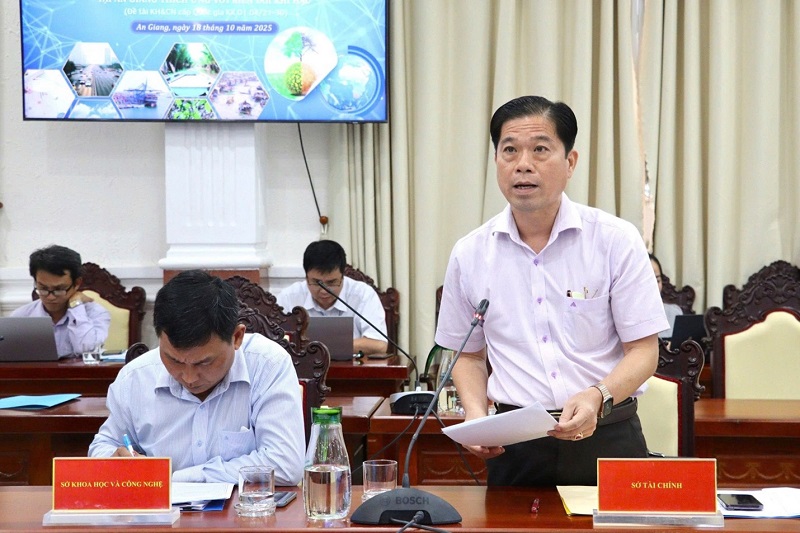
Mr. Pham Minh Tam – Member of the Provincial Party Committee and Director of the An Giang Provincial Department of Finance, presenting solutions for mobilizing resources for transportation infrastructure development in An Giang province
From a research perspective, Assoc. Prof. Dr. Phan Thi Bich Nguyet – Chairwoman of the UEH Strategy and Policy Advisory Council and a representative of the project implementation team, analyzed the barriers to the effective mobilization and use of resources (capital, human resources, science and technology, etc.). She also proposed new approaches and a framework of solutions for innovating resource mobilization methods for industrial parks, border gate economic zones, and key infrastructure projects.
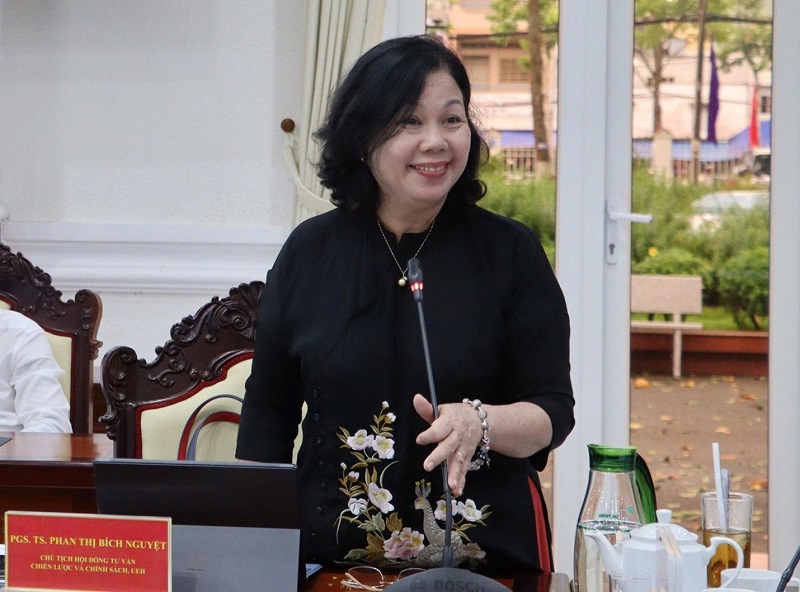
Assoc. Prof. Dr. Phan Thi Bich Nguyet - Chairwoman of the UEH Strategy and Policy Advisory Council, proposing new orientations for mechanisms and development models for industrial parks and border gate economic zones
A Space for Multidimensional Cooperation for Local Development
The open discussion session featured numerous scientific critiques and insightful policy recommendations from experts, focusing on solutions for the socialization of resources, promoting public-private partnerships (PPP), applying technology, digital transformation, and developing green infrastructure. These outcomes and insights not only provide a crucial scientific basis for An Giang's transportation development policymaking but also contribute valuable practical data to the National-level Scientific Project led by UEH.
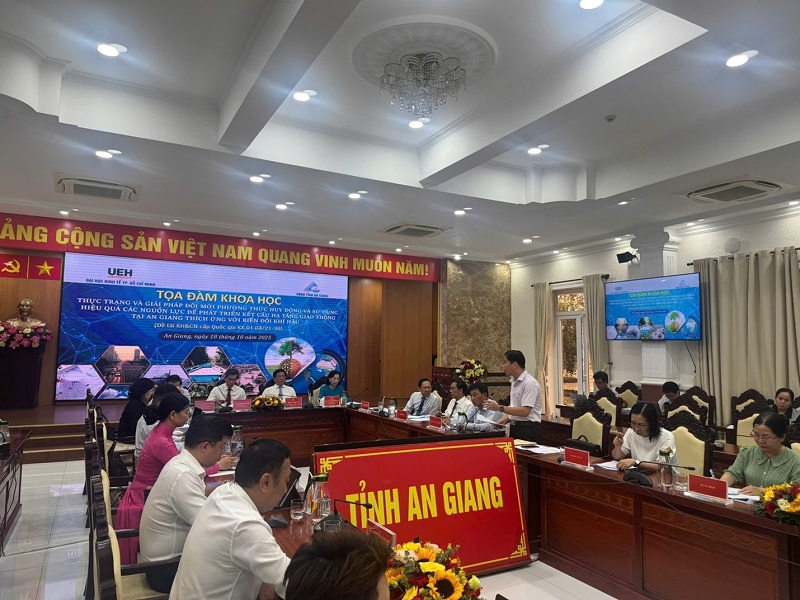
Delegates engaging in discussion at the seminar
The success of the seminar has opened a space for multidimensional cooperation among the university, government, businesses, and the community, aiming for a modern, sustainable, and climate-resilient transportation system. This will, in turn, foster socio-economic growth for An Giang province and the Mekong Delta region as a whole.
Once again, the event affirmed UEH's role as a knowledge bridge between academia and practice, particularly through the UEH Mekong Branch—a center for disseminating research and transferring knowledge for the region's sustainable development. With its orientation as a multidisciplinary university, UEH continues to assert its pioneering position in training, research, and policy advisory, partnering with localities to address critical development challenges and contributing to the realization of the Mekong region's sustainable development strategy in the new era.
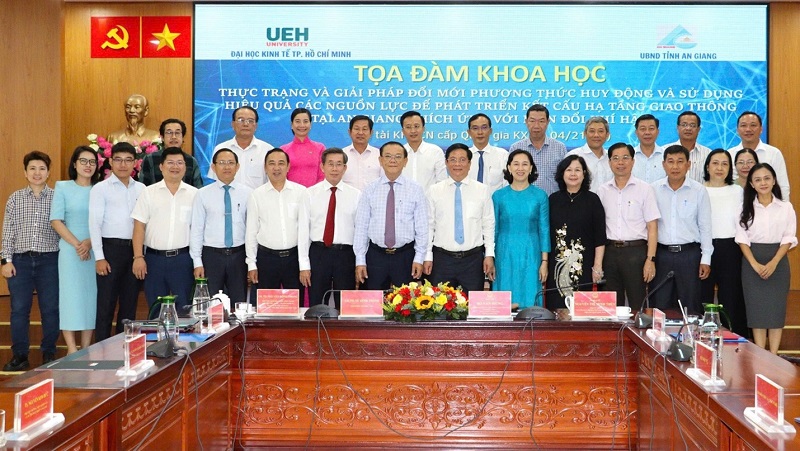
Delegates taking a commemorative photo at the seminar
News, photos: Mekong International Training Center




